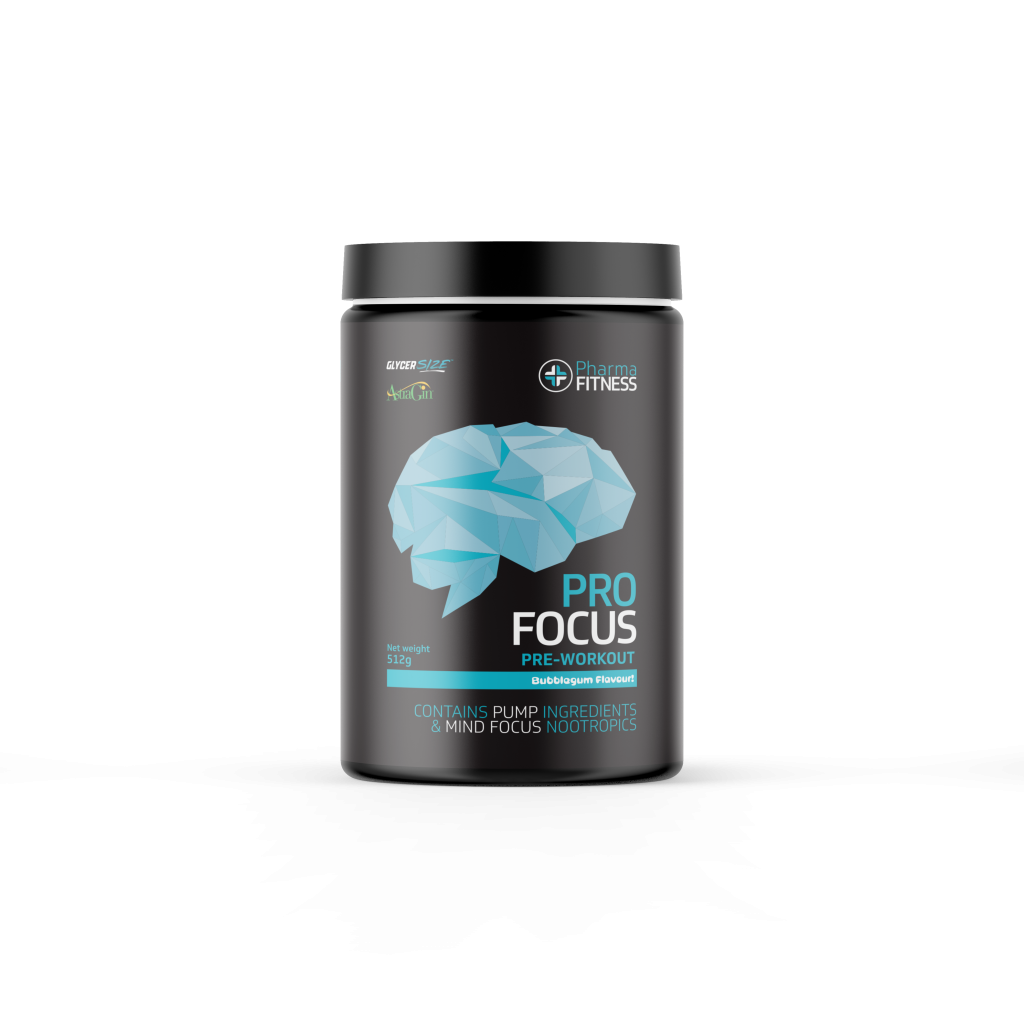Simple Guide to Pre-Workouts
Over the last few years, pre-workout supplements have become more and more popular. But not every pre-workout is the same, nor is every pre-workout product suitable for every athlete. Each one has different ingredients in different doses with different intended effects, and might be suited to different types of athletes with different goals.
What Is A Pre-Workout Supplement?
Pre-workout supplements include all the ingredients that people take with the goal of making their workouts more effective. The most common ingredients in today's popular pre-workouts include caffeine, beta-alanine and nitric oxide boosters such as arginine and citrulline which help increase blood flow and the "pump" feeling.
Pre-workouts can be divided into two groups. Those with stimulants, and those without. The stimulants pretty much always include caffeine but may include other stimulants including, Teacrine and guarana. There are also many stimulant free pre-workouts for those who are sensitive to caffeine, simply don't want it, or who exercise close to bedtime.
If you're looking for a pre-workout that will make you feel wired and ready for action, you'll find no shortage of them. However, if that's exactly what you don't want, you still have lots of choices. And if you want the best of both many pre-workouts fall in the middle.
What Ingredients Are In High-Quality Pre-Workouts?
The label on some pre-workouts look simple enough. In other cases, it's a big list of difficult to pronounce words and secretive blends. Plus with so many different brands and products, it can be hard to know what makes one better than the other.
If you're just starting out, it's usually better to keep it simple. Here’s a few key ingredients to look for, and how they help you have a better workout:
Beta Alanine
Beta alanine is a pre-workout ingredient with a singular purpose. To help you withstand that burning feeling and get a few more reps, making the most of every set.
When you perform high-intensity exercises, acidity can start to build up in your body, increasing muscle fatigue and reducing performance. Beta alanine binds with histidine to raise levels of the amino acid carnosine, which buffers the hydrogen ions that form these acids, ultimately helping you maintain your intensity for longer periods of time.
If you take a large dose of beta alanine, you will most likely experience a tingling sensation, often on the neck and face. This is a condition called paresthesia. Scientists are not certain why some people experience paresthesia after taking beta alanine, but it is harmless and temporary.
Beta alanine's benefits come with a catch. It needs to be taken consistently for 2-3 weeks before the results start to appear. Luckily, you don't need to take beta-alanine right before a workout, though. If you take it in smaller doses throughout the day, it will provide the workout benefits with less tingling.
Nitric Oxide Boosters
These are the pre-workout ingredients that boost blood flow to muscles, and help you get a serious pump during high-rep lifting.
L-Arginine used to be the most popular nitric oxide booster but it is fairly rare these days. Today, there many different ingredients that may help with nitric oxide production. The most popular is probably the non-essential amino acid citrulline, either in the form of L-citrulline or citrulline malate.
L-Citrulline is the natural form of citrulline which is found in watermelon. It helps boost nitric-oxide levels, which can help dilate your blood vessels to get more oxygen and nutrients to your muscles.
Other Pre-workout Ingredients
L-tyrosine: For improved energy and fatigue-resistance
L-Theanine: For increased mental focus and to combat the jitters that can accompany caffeine
Beetroot extract: For endurance and pumps
Betaine: For long-term strength, size, and recovery gains
When Should I Take A Pre-Workout?
You often see people drinking their pre-workout as they're walking into the gym. This is one habit that you shouldn't copy if you want yours to be as effective as possible.
Most of the active ingredients in your pre-workout drink take 30-60 minutes to reach peak levels in your blood. If you wait until you reach the gym to take it, you'll be well into your second or third exercise before the full effects kick in.
If you take your pre-workout earlier than that, like 60-90 minutes, you'll still have enough energy to get through even a pretty long workout. Most pre-workouts contain caffeine, and it takes your body 3-5 hours to cut the amount of caffeine in your blood in half. That's how long a normal pre-workout can be said to last, although everyone metabolises caffeine at different rates.
An important thing to consider is whether you're taking a stimulant pre-workout too late, especially if you work out in the late afternoon or early evening. Since many stimulant pre-workouts contain large amounts of caffeine, taking them too late in the day may harm your sleep. That's a huge deal because getting enough sleep is one of the most important factors for recovering from your hard work in the gym.
What If I'm Sensitive To Stimulants?
Research has shown that genetics play a significant role in caffeine sensitivity: Some people are highly affected by it, some aren't affected at all, and some are in between. Whether you are highly sensitive to caffeine, just don't like it, are trying to break a pre-workout stimulant habit, or you workout late at night and don't want your sleep interrupted, non stimulant pre-workouts offer a good alternative. A few of these non stimulant ingredients are listed below:
Citrulline malate: For increased blood flow and endurance
Alpha-GPC: A neurotransmitter prerequisite to help the nervous system maximize muscle activation
Betaine: For longer-term size and strength gains
How Can I Prevent Feeling Jittery After I Take A Pre-Workout?
Depending on how much stimulants are in your pre-workout, and how your body responds to caffeine and other stimulants, some jittery feelings may be inevitable. However, many pre-workouts these days contain stimulants that are reputed to feel smoother than straight caffeine, such as theacrine, or they feature calming compounds to take the edge off such as L-theanine.
Dosing caffeine on body weight, the range for optimal effectiveness is 3-6 milligrams per kilogram of body weight. For a 150-pound person, this would be a range of 204-408 milligrams of caffeine. That's a big range. Know where your preworkout fits in it before you take it, and if you've only ever taken 100 milligrams of caffeine at a time, don't jump right to 400 milligrams.
If you have ever drank coffee on an empty stomach, you know the feeling. Light-headed, jittery, and sometimes even nauseous. If you drink a pre-workout with 300-400 milligrams of caffeine without eating anything you can feel exactly the same way.









